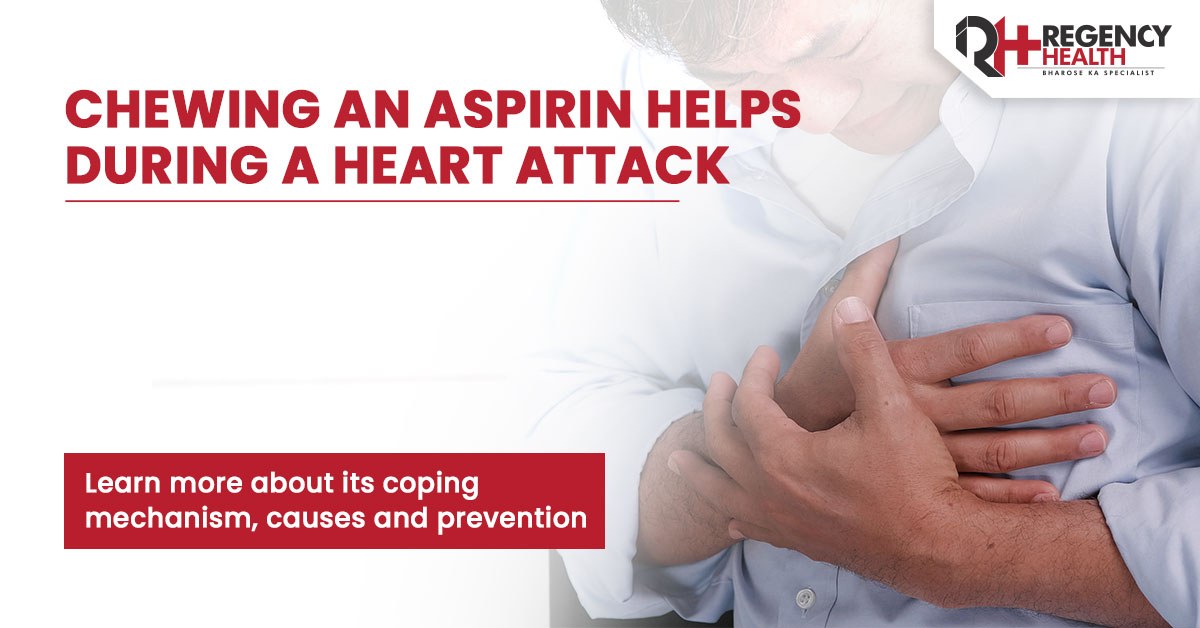
What Is a Heart Attack?
Myocardial Infarction (MI), also known as a heart attack, happens when oxygen-rich blood fails to reach your heart due to artery blockage. The lack of blood in the heart causes the tissues to lose oxygen and eventually die. Heart attack is a critical condition that causes millions of deaths worldwide and in several situations hampers our body functioning as well. Obstructed blood flow can result in the accumulation of fluids in our lungs and create severe complications.
The blockage of arteries is mainly caused by a build-up of plaque composed of fat, cholesterol, and cellular waste products. The sudden formation of blood clots is another contributing factor to artery blockage.
Heart Attack Causes
A heart attack occurs due to a combination of genetic and lifestyle factors. Smoking, high blood pressure, alcohol consumption, and exposure to extreme cold are some of the common causes of heart attacks
Apart from these, you are more likely to experience a heart attack if you have high triglyceride or cholesterol levels which can be controlled by increasing your physical activity and following a balanced diet.
A person can also experience a heart attack if they fall into the following categories:
- Men above 45 age
- Women above 55 age
- Obese people
- Diabetics
- Heart disease history in the family
- People with a largely sedentary life
- Highly stressed individuals
- Individuals who consume recreational drugs such as cocaine
- Autoimmune disease patients.
The amount of fat in our diet can also be a significant heart disease risk factor. Processed and fried foods, along with meat and dairy products that contain saturated and trans-saturated fats also heighten the risk levels.
Triglycerides, a type of fat found in your blood, also store extra energy from the food we consume. High blood triglyceride levels can also lead to Myocardial Infarction.
Heart Attack Symptoms
Heart attack symptoms vary from person to person and each can experience different signs depending on their body composition, lifestyle, and genetics. Chest pain and breathlessness are some of the most common symptoms of heart attack and are faced by several patients across the world. Some common symptoms include:
- Angina (Chest Pain)
- Jaw and neck pain
- Discomfort in back, shoulder, and arms
- Choking sensation
- Cold sweating
- Lightheadedness
- Vomiting and nausea
Heart Attack Treatment
Heart attack treatment can either follow a clot-clearing methodology or a surgical intervention. Some methods used to clear blood clots are
Thrombolytics – These medicines, also referred to as clot-busting drugs, aid in dissolving blood clots that are obstructing blood flow to your heart.
Antiplatelet Medication -These medications, also known as platelet aggregation inhibitors, halt the growth of current clots and stop new ones from forming.
Blood Thinners -To prevent blood clots, you could be given medications like heparin.
Surgical Methods
A less invasive surgery termed percutaneous coronary intervention (PCI), also known as an angioplasty with a stent, may also be recommended by the doctor to treat Myocardial Infarction.
The surgeon places a long, thin tube known as a catheter to access this blockage through your artery. The artery is then reopened, facilitating the blood flow.
Your surgeon might also place a tiny, mesh tube known as a stent where the obstruction is at. The artery’s ability to contract again can be prevented by the stent.
A bypass operation is another procedure your doctor might recommend for you. The purpose of bypass surgery is to create a new way to aid blood flow.
How a Heart Attack can be prevented
By controlling specific risk factors and leading a healthy lifestyle, you can prevent a heart attack.
It’s critical to monitor your blood pressure, diabetes, cholesterol levels, and body weight and to change your lifestyle. Immediately seek medical attention if any of these values rise to unhealthful levels.
To live a heart-healthy lifestyle, one must abstain from smoking, get enough exercise, and eat a diet high in fruits, vegetables, fiber, healthy fats, and lean sources of protein. If you do consume alcohol, do it in moderation and make an effort to regulate your stress.

 Call-an-Ambulance
Call-an-Ambulance



